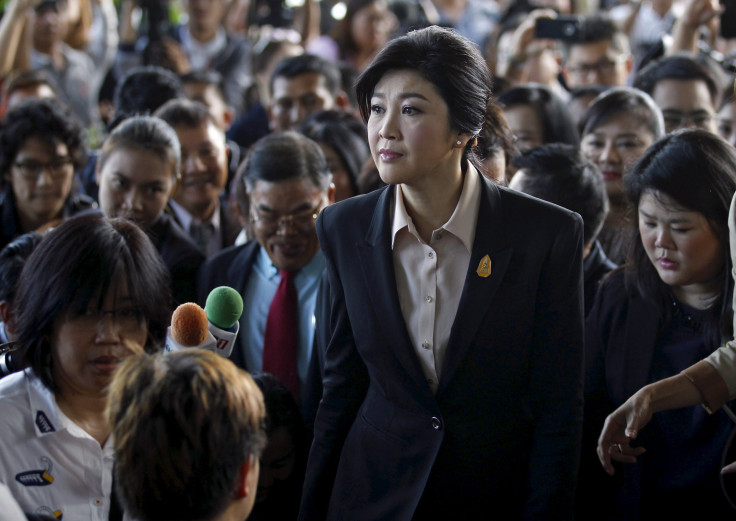Former Thailand Premier Yingluck Shinawatra Denies Negligence Charges In Rice Subsidy Case

Yingluck Shinawatra, Thailand's former prime minister, on Tuesday pleaded not guilty to charges of negligence related to a rice subsidy scheme during her term, as the trial against her began.
Arriving at the court, the former leader said: "I prepared myself well today and am ready to defend myself. ... I hope that I will be awarded justice," BBC reported, citing Reuters.
The trial comes nearly a year after Yingluck, sister of exiled former premier Thaksin Shinawatra, was deposed by a military coup, weeks after Thailand’s Constitutional Court found her guilty of abuse of power. She was also retroactively impeached in January and barred from Thai politics for five years.
She is currently facing charges of criminal negligence for her role in the rice subsidy scheme, which paid rice farmers in poor areas twice the market rate for their harvest. The program was allegedly plagued with corruption, and cost the state coffers over 500 billion baht ($15 billion) in losses.
The program’s perceived wastefulness sparked major protests against her administration and drew censure from the opposition, but she has defended her approach, saying it was necessary to support the country’s impoverished farmers.
Yingluck’s Pheu Thai party draws most of its support from those who were targeted through the scheme -- the rural farmers. Her party had won every election since 2001, but it is strongly opposed by Bangkok’s political and financial elites.
Her brother Thaksin was removed from power in a previous coup in 2006. He currently lives abroad to avoid major corruption charges.
Speaking from Seoul on Tuesday, Thaksin reportedly said the military’s rule was "not so impressive yet," however, he had no plans to mobilize his “red shirt” supporters, who remain a powerful force within Thai politics.
"I think democracy will prevail sooner or later, but we have to be patient, and we have to be peaceful," he said, according to Reuters, adding: "Don't resort to any kind of violence."
© Copyright IBTimes 2024. All rights reserved.





















